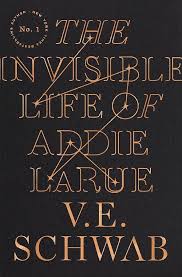Chapter XVII
byChapter XVII unfolds on a serene, yet ordinary, day in New York City on September 4, 2014, where Henry and Addie remain in the soft, warm cocoon of their shared bed. Surrounded by the quiet rhythm of each other’s breathing, they linger in a peaceful intimacy, holding onto the fleeting moments with whispered names and quiet smiles. As the world outside transitions from morning to afternoon, they both resist the inevitable pull of time, content to stay wrapped in the comfort of their space, savoring the warmth of each other’s presence. Addie, as always, fills the silence with stories—stories of places she’s been and things she’s seen that Henry will never fully experience, from fairy pools on the Isle of Skye to swimming in waters so clear they seem unreal. Each tale is not just a memory, but a window into a life that Henry will only be able to imagine, a collection of adventures, each moment a piece of a larger, untold story. These memories, rich with a kind of magic, are the very essence of a life lived beyond the ordinary, and Henry knows that these stories will forever be beyond his reach, as they slip through his fingers like grains of sand.
Despite the serenity of their moment together, Henry finds himself consumed by an underlying fear of what he knows is coming—an awareness that their time together is fleeting, no matter how much he wishes otherwise. The quiet of the room seems to mock him, as the ticking of time echoes in the back of his mind, growing louder with each passing second. In the simplicity of getting out of bed, a task so mundane, Henry feels a sharp pang of resignation. To rise, to face the world, seems like an act of surrender to the inevitable passage of time, one that cannot be halted or slowed. Yet even as he tries to resist, the reality of life’s constant forward motion presses in on him. Despite the beautiful, almost timeless moments they share, his physical hunger for sustenance brings him back to the ordinary, reminding him that even amidst profound connections, life’s basic needs persist—an unrelenting part of the human experience that neither he nor Addie can escape.
Addie, however, seems to embody a sense of calm in the face of time’s passage. With gentle hands, she prepares their meal, weaving more stories into the fabric of their day, each one a thread that binds them together in ways both tangible and intangible. Her stories are not only about her past but also about the way she has learned to live in the present, accepting each moment for what it is, rather than wishing for something else. As she moves through the task of cooking, she gives him a final, subtle gift—the chance to live through her stories and share in the essence of her life. This gesture, simple yet profound, is Addie’s way of making sure that even when the moment is over, Henry will carry these parts of her with him. Stepping outside together, the world feels heavier now, more pressing, as though the very air they breathe is full of unspoken truths. The quiet simplicity of the day, once so peaceful, is now charged with a sense of urgency, a realization that the clock is always ticking, and no matter how hard they try, they will never be able to truly stop it. Time remains a force that cannot be held back, leaving them with a bittersweet sense of “not enough.”
But Addie, in her wisdom, offers Henry a different perspective on the passage of time, one shaped by her three centuries of life experience. To her, living for three hundred years is not fundamentally different from living a single day. It is not about how much time one has, but how fully one embraces each second, how deeply one lives in the moment. Addie’s perspective is not just a lesson; it’s a way of being—a call to live fully, to let go of the fear of the future, and to cherish the present while it lasts. In this way, she encourages Henry to stop viewing their time together as something to be measured, but rather as something to be felt, something to be experienced without reservation. This way of living, in the moment and without the heavy burden of future expectations, defines the essence of their day together. For Addie, life is a continuous accumulation of “nows,” each moment a small part of the larger tapestry of her existence. And in these moments, they are not bound by time, but by the beauty and richness that comes from living fully within it.
In this chapter, the narrative weaves through the theme of time—not as an external force to be feared, but as something to be embraced. Through Addie’s wisdom and Henry’s struggle, the story highlights that the most meaningful parts of life are not defined by how long we have, but by how deeply we experience the moments that are given to us. The day, though seemingly ordinary, is imbued with a profound sense of understanding, a realization that time, whether long or short, is ultimately measured by the depth of the connections we make and the richness of the experiences we cherish. The cycle of time, with its relentless forward march, becomes a backdrop for the most important lesson—live now, live fully, and do not let the moments slip by unnoticed. It is not about holding onto time, but rather about embracing it in all its fleeting, beautiful complexity. In the end, Henry’s realization is clear: the real gift of time is not the quantity of it, but the quality of the moments that fill it.


